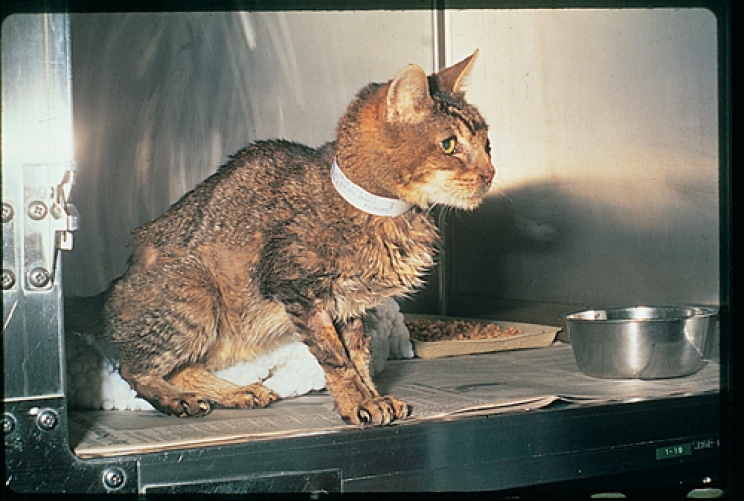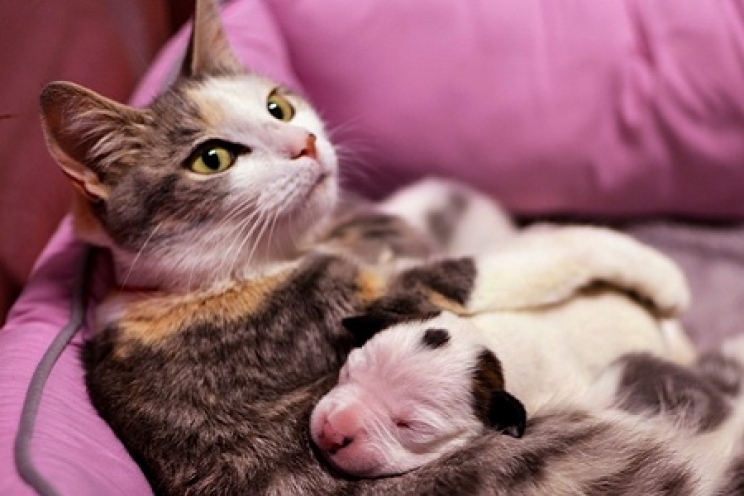Cats are much more likely than dogs to contract infectious diseases.
Mastitis is a fairly common problem in female dogs and cats, especially during lactation, in the last period of pregnancy and even during phantom pregnancy. There are numerous treatments and remedies to prevent this from happening and to relieve the discomfort and pain generally associated with this problem.
First, it is good to clarify its meaning, before we can understand how to prevent it.
What is mastitis?
Mastitis is inflammation of the mammary gland. In most cases, the origin of the inflammation is of bacterial nature.
The mammary gland, in fact, is structured so that the milk can escape through the specific ducts and through the nipple. This means that, despite being deep inside the breast, the gland is in any case in contact with the external environment.
Many germs and bacteria are present on the tip of the nipple connected to the exterior, which in particular circumstances can easily go up through the nipple and its ducts, reaching the mammary gland.
Precisely for this reason, the risk factors that most frequently contributes to the onset of mastitis include above all:
- Insufficient hygienic conditions: this aspect is prevalent especially in stray animals. Cats or female dogs living on the street or in the countryside are often in contact with an environment full of bacteria. During pregnancy or breastfeeding, germs can contaminate the skin, easily reaching the mammary gland, where the infection is established;
- Presence of wounds or lesions on the skin of the breast: forcing puppies to remain still and calm is impossible. For this reason, mothers are often forced to endure scratches and bites inflicted by offspring during breastfeeding process. When the skin is not intact, the bacteria present in the environment can easily settle on the nipple, creating infections;
- Caesarean section: mastitis is more frequent in cats and in female dogs that have undergone a caesarean section. The area, in fact, is already affected by inflammatory processes typical of surgical wounds, so the risk bacterial contamination (normally present in the environment) increases. Furthermore, during breastfeeding, puppies can create injuries to the surgical wound, intensifying the inflammation, which can thus expand into the surrounding regions;
- Loss of puppies: if the puppies are removed from their mother too soon or if the birth is not successful, the milk produced by the mammary gland stagnates, favouring contamination by bacteria;
- Early weaning: puppies must stay with their mother as long as necessary to complete the lactation phase. If the babies were fed the typical weaning food before the expected age, they could lose interest in the mother's milk. This could thus accumulate in the breasts, where bacteria would immediately attack it;
- Systemic infections: if the mother has diseases acquired before or during pregnancy, the immune system may not be able to counteract the invasion of the mammary gland by germs;
- Depression: if the mother is depressed, the immune system becomes a reflection of it. Bacteria and viruses can attack the maternal organism undisturbed, increasing the risk of infection.
Symptoms of mastitis
In case of mastitis, the breasts appear swollen and red. When you touch them, they are hardened, hot and often painful. If the infection progresses, the localized inflammation of the mammary gland results in a real septic mastitis, with symptoms that affect the entire organism of the animal. Among these: fever, dejection, loss of appetite and lethargy.
Mastitis also involves very strong pain. The mother may decide to refuse breastfeeding and take care for the babies, sometimes even attacking them. Precisely for this reason, the risk that the puppies do not survive, especially if with a few days of life, is very high.
How to prevent it
It is practically impossible to expect the abdomen of our animals to remain perfectly clean. However, some tricks can be put into practice to reduce contamination by bacteria. For example:
- Try to keep the cat or dog with their babies in an isolated place in the house, preparing a cozy and easily accessible kennel;
- Always keep a clean blanket or sheet in the kennel, which you will change and wash often and regularly;
- Always clean the mother cat's litter box;
- Check that the skin of the breasts and abdomen is free from wounds;
- Prevent your pet from licking its udders. In case of pain, the temptation could be very strong, so always keep an eye on it;
- Feed your dog or cat with specific foods to promote efficient breastfeeding;
- Use warm water compresses on the breasts at least twice a day.
The most suitable treatment in case of mastitis involves the administration of antibiotics for a fairly prolonged period of time. In case of pain, your vet can recommend an anti-inflammatory that does not put the health of the little babies breastfeeding at risk.
As for breastfeeding, in milder cases, it should not be suspended at all. Instead, it should be encouraged with the use of specific food and supplements that stimulate the production and release of milk.
In severe cases, however, the infection may have reached such high levels as to irreparably compromise the hygiene of the milk. In case of important changes in the consistency or colour of the milk, or even traces of blood, it may be necessary to remove the babies from the mother and to proceed with an alternative feeding formula for the puppies and kittens.


